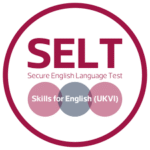The United Kingdom government has rolled out initiatives to attract qualified STEM teachers from around the world, including Nigeria.
This was announced in a press release issued by the UK’s Department for Education.
The Department of Education outlined key requirements for international applicants, highlighting qualifications, documentation, and subject-specific expectations that must be met to teach in secondary schools across England.
Recall STEM is an acronym for Science, Technology, Engineering and Mathematics, a group of subject areas currently attracting professionals and students in droves.
With a streamlined application process for Qualified Teacher Status (QTS) and financial incentives like the International Relocation Payment (IRP), Nigerian teachers now have an opportunity to advance their careers in the UK.
Pan-Atlantic Kompass reports that the development comes as the UK is grappling with a shortage of STEM teachers, particularly in subjects like physics, mathematics, and computing.
According to recent reports, the number of specialist teacher vacancies in computing and mathematics has tripled since 2010, while sciences have seen a sixfold increase.
This issue was said to have prompted the UK government to launch the International Teacher Recruitment Programme, targeting qualified educators from countries like Nigeria, Ghana, India, and South Africa.
Recall that since February 2023, Nigerian teachers have been eligible to apply for QTS through the Teaching Regulation Agency (TRA), following a change in rules to recognize teaching qualifications from select countries, including Nigeria.
Additionally, the UK government offers a £10,000 International Relocation Payment (IRP) to eligible physics and language teachers relocating to England, easing the financial burden of moving.
To qualify for QTS as a Nigerian teacher, applicants must meet specific criteria:
• Educational Qualifications: A degree and recognized teacher-training qualifications equivalent to UK standards.
•.Teaching Experience: At least one year of teaching experience.
• English Proficiency: Proficiency in English at an undergraduate level, typically demonstrated through an approved English language test or academic qualifications. Candidates must demonstrate English proficiency through:
i) A degree taught in English
ii) An approved English language test, such as IELTS for UKVI
iii) Letter of Professional Standing
• Subject Specialization: For the IRP, applicants must be qualified to teach physics or languages. However, QTS applications are open to teachers of other STEM subjects, including mathematics and computing.
• Certificates and Transcripts: For every qualification listed, applicants must submit both a certificate and a transcript (or diploma supplement), indicating the scope of practical teaching covered during training.
Certain Nigerian teaching qualifications are not recognized in the UK. These include:
i) Nigeria Certificate in Education (NCE)
ii) Teachers Certificate Grade II
iii) Associate Certificate in Education (pre-1990)
• Accepted Teaching Subjects: Eligibility is limited to applicants trained in teaching students in specific subjects:
Maths, Science (Biology, Chemistry, Physics), Computer Science
French, German, Italian, Japanese, Latin, Mandarin, Russian, Spanish
Related fields like Agricultural Science or Economics are not accepted unless at least 50% of the bachelor’s degree or 25% of teacher training is focused on an approved subject.
Here’s a step-by-step guide for Nigerian teachers seeking QTS and relocation:
• Verify Qualifications: Confirm that your teaching qualifications are recognized by the TRA. Nigerian qualifications from accredited institutions are generally accepted. However, applicants may need to provide evidence of equivalence through UK ENIC (formerly UK NARIC).
• Apply for QTS: Apply to the Teaching Regulation Agency via the GOV.UK website. You’ll need to provide:
i) Academic transcripts and teaching certificates.
ii). Proof of teaching experience (e.g., reference letters from employers).
iii) An English language test result, if required (e.g., IELTS or TOEFL).
iv) A valid passport and other identification documents.
• Secure a Teaching Position: While QTS applications can be submitted independently, securing a job offer from a UK school strengthens applicants’ visa applications. The International Teacher Recruitment Programme assists with matching candidates to schools and provides professional support.
Apply for a Skilled Worker Visa: Once you have a job offer, apply for a Skilled Worker Visa through the UK Visa Application Centre in Lagos or Abuja. The visa process requires:
i). A Certificate of Sponsorship (CoS) from your employer.
ii). Proof of QTS or ongoing QTS application.
Financial evidence to show you can support yourself in the UK.
iii) Prepare for Relocation: Upon visa approval, plan your move to England. The IRP is disbursed as a one-time payment to assist with expenses like flights, accommodation, and settling in.





